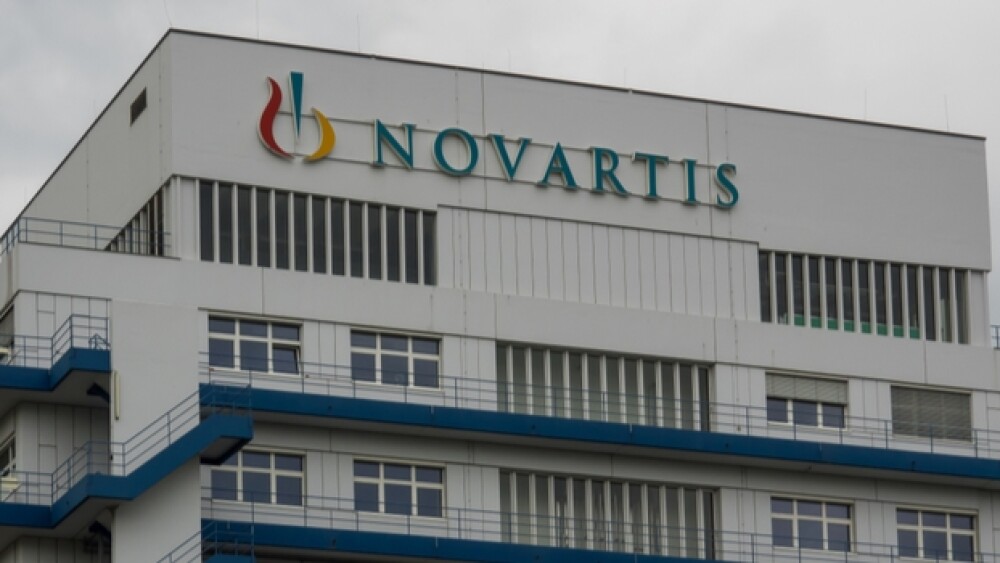Targeted radioligand therapy 177Lu-PSMA-617 from Novartis significantly improved overall survival (OS) and radiographic progression-free survival (rPFS) in patients with PSMA-positive metastatic castration-resistant prostate cancer.
photobyphm/Shutterstock
Targeted radioligand therapy 177Lu-PSMA-617 from Novartis significantly improved overall survival (OS) and radiographic progression-free survival (rPFS) in patients with PSMA-positive metastatic castration-resistant prostate cancer, according to findings from the Phase III VISION trial.
Findings from this trial are promising, given that patients with castration-resistant prostate cancer often have tumors that show signs of growth despite receipt of testosterone-reducing hormone treatments. Patients with metastatic castration-resistant prostate cancer also have tumors that spread to other parts of the body and remain unresponsive to hormone therapy, making this investigational therapy a hopeful candidate for treatment of the disease.
The five-year survival rate is approximately 15% for patients with metastatic castration-resistant prostate cancer, indicating this disease is an area where an urgent unmet treatment need exists.
In the Phase III VISION trial, researchers examined the efficacy and safety of 177Lu-PSMA-617, an investigational PSMA-targeted radioligand therapy, in patients with advanced prostate cancer.
The radioligand treatment approach from Novartis uses a targeting compound which can bind to markers expressed by tumors and a radioactive isotope. Ultimately, this causes DNA damage and inhibits tumor growth and further replication. Radioligand therapy supports targeted delivery of the radiation to the tumor, which can restrict damage to surrounding healthy tissue.
The Phase III VISION trial achieved OS and rPFS endpoints, according to Novartis, and the safety of the drug was consistent with previously reported data. Full trial results are expected to be presented at a future medical meeting. The company also plans to submit the trial data to regulatory authorities in the U.S. and Europe.
“Patients with metastatic castration-resistant prostate cancer have a less than 1 in 6 chance of surviving 5 years and need new treatment options,” said John Tsai, Novartis’s Head of Global Drug Development and Chief Medical Officer. “These groundbreaking data confirm our belief in the potential of 177Lu-PSMA-617 to reimagine outcomes for these patients through phenotypic precision medicine.”
Other previous studies have examined the role of Novartis’ 177Lu-PSMA-617 in combination with other agents for the treatment of advanced prostate cancer.
In late summer of last year, Noxopharm found that a combination of 177Lu-PSMA-617 and Veyonda®, a sphingosine-1-phosphate inhibitor, was associated with a median OS of 17.1 months in patients with late-stage prostate cancer who had not received benefit from all other standard treatment options. Another prior Phase I/II clinical trial from Noxopharm found the same combination provided a “striking” survival benefit in 56 patients with late-stage metastatic castration-resistant prostate cancer.
The positive findings from other trials are good news for Novartis, which hopes to secure approval for 177Lu-PSMA-617 in advanced prostate cancer in the near future. In addition to its work in prostate cancer, Novartis recently announced it has joined the global fight against COVID-19 by lending its hand in helping companies’ manufacturer their novel coronavirus vaccines.
The company said in a recent announcement that it is collaborating with Pfizer-BioNTech and CureVac to manufacture the two respective companies’ mRNA-based COVID-19 vaccines in Novartis facilities. The goal is to assist in ramping up manufacturing to meet the urgent global demand for effective and safe COVID-19 vaccines.
“We are all working together with the vaccine developers to learn how to produce their vaccines rapidly,” said Joachim Momm, head of the Novartis manufacturing site in Stein, Switzerland. The Swiss site will help Pfizer-BioNTech produce its vaccine doses. “I hope we keep the collaborative spirit alive after the pandemic as well.”





